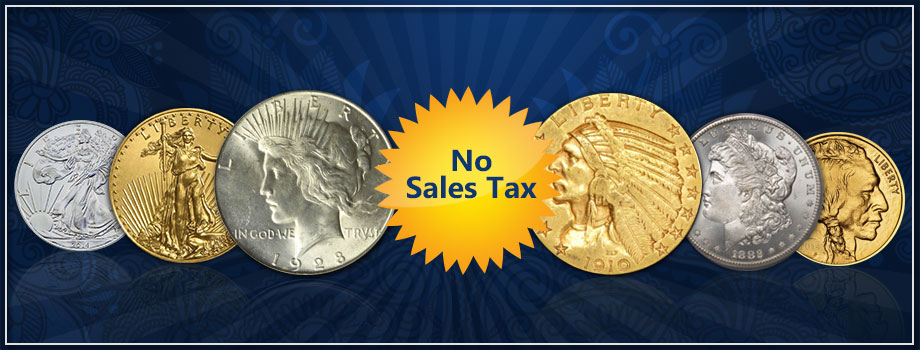More States Are Exempting Sales Tax on Precious Metals, Coins
Over the past ten years, a number of U.S. states that didn't already exempt gold and silver bullion from sales tax are coming to their senses.
This sea change happened either through the state legislatures or by constitutional amendments depending on the state. A handful of states long ago eliminated all sales taxes of any form.
The recent wave of legislation is no doubt influenced by memories of the financial crisis in 2008.
Now, more than 70% of the states in the Union legally regard gold as sound money by eliminating taxation on in-state purchases of precious metal coins.
It creates more freedom within the law for the trade and ownership of gold and silver.
True to the American spirit of federalism, the paths taken by different states to reach no sales tax on gold varied slightly.
Yet each state's laws about sales tax on coins or precious metals has something in common: They recognize the relationship between gold and a sound monetary system.
Thus the laws (and the related bills still under consideration) are defining and codifying this historical role for gold and silver—especially high-purity, investment grade coins.
This is a common sense approach to establishing and maintaining a fiscally prudent government.
Unlike Washington, many states are constitutionally obligated to balance their budgets each year before any new laws can be passed.

Tennessee, Alabama, and Kansas are the three latest states (as reported by Numismatic News) to try to change how coin and bullion purchases are taxed.
North Carolina passed similar legislation in 2017.
None of these partial or complete exemptions apply to jewelry.
However, they certainly apply to legal tender coins made with silver, gold, platinum, or palladium of at least 90% pure precious metal.
All of the bills currently being considered share the same intention to encourage the purchase and trade of bullion coins.
Whichever way you look at it, this implicitly has the effect of decreasing the use of fiat currency.
The recent sweep of broader changes in the federal tax code could prompt more attempts at the state level, however, to recognize gold's role as sound money.
It's also not ironic to admit at this point: tax regulations are tightening on cryptocurrencies just as gold, silver, and coins start getting a lighter touch.
The IRS has for years issued guidance on how each filer must handle tax implications on bitcoin transactions and any profits derived from trading BTC or any altcoins.
The opinions and forecasts herein are provided solely for informational purposes, and should not be used or construed as an offer, solicitation, or recommendation to buy or sell any product.

Everett Millman
Everett has been the head content writer and market analyst at Gainesville Coins since 2013. He has a background in History and is deeply interested in how gold and silver have historically fit into the financial system.
In addition to blogging, Everett's work has been featured in Reuters, CNN Business, Bloomberg Radio, TD Ameritrade Network, CoinWeek, and has been referenced by the Washington Post.

